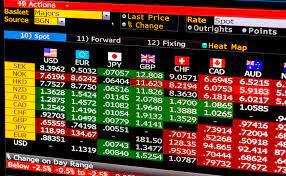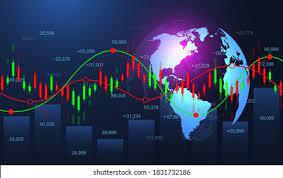Introduction

Learn Forex Trading in Kenya
Are you looking to learn Forex trading in Kenya? With the global foreign exchange market surpassing $6 trillion in daily trading volume, the opportunities for traders are endless. Kenya has seen significant growth in the number of individuals interested in Forex trading as an investment opportunity. The country has a vibrant and growing community of traders, and many resources are available for those looking to get started. In this guide, we’ll explore the best training programs and resources for learning Forex trading in Kenya and help you take the first step towards your financial goals.
Training Programs
When it comes to learning Forex trading in Kenya, there are a variety of training programs available to suit different needs and budgets. These programs range from in-person classes to online courses, and from free resources to paid programs. Here are a few popular options for those looking to learn Forex trading in Kenya:
- In-person classes: These classes are typically held by local Forex traders or training centers, and they provide the opportunity for students to learn in a classroom setting. They often offer hands-on experience and the chance to interact with other traders. However, in-person classes can be expensive and may not be available in all areas of Kenya.
- Online courses: Online Forex trading courses are a great option for those who want to learn at their own pace and on their own schedule. These courses are often interactive, and they can include video lectures, quizzes, and forums where students can ask questions. Some popular online course providers in Kenya include Forex Kenya, Learn to Trade and Forex Trading Kenya.
- Free resources: There are also a number of free resources available for those who want to learn Forex trading in Kenya. Websites like BabyPips and Investopedia offer free guides and articles on Forex trading, and there are also free online forums and social media groups where traders can connect and share information.
When choosing a training program, it’s important to consider your budget, schedule, and learning style. Some programs may be more expensive but offer more comprehensive training, while others may be more affordable but offer less support. It’s also important to check the credibility of the training program you are considering and to make sure it is suitable for your level of knowledge and experience.
In addition, It’s important to note that while training programs can help you learn Forex trading in Kenya and provide you with the basics and tools you need to get started, they are not a guarantee of success. Trading in the Forex market can be risky, and it’s important to have a sound understanding of the market before you start trading with real money.
Resources
In addition to training programs, there are a number of other resources that can be used to learn Forex trading in Kenya. These resources can supplement the information provided in training programs and can help traders stay up-to-date on the latest market trends and strategies. Here are a few examples:
- Books: There are many books available on Forex trading that can provide in-depth information on the subject. Some popular books include “Currency Trading for Dummies” by Brian Dolan, “The Little Book of Currency Trading” by Kathy Lien and “Forex for Ambitious Beginners” by Jelle Peters.
- Websites: There are many websites that provide information on Forex trading, including news, analysis, and educational content. Some popular websites include ForexLive, Forex Factory and TradingView.
- Forums and social media groups: There are also a number of online forums and social media groups where traders can connect and share information. These groups can be a great way to stay up-to-date on the latest market trends and to learn from more experienced traders.
It’s important to note that while these resources can be helpful in learning Forex trading in Kenya, they should not be used as a substitute for a comprehensive training program. It’s also important to be cautious when using information from these resources, as it may not always be accurate or relevant to the Kenyan market.
In conclusion, learning Forex trading in Kenya requires a combination of training and education, practice, and staying informed about the market. With the right resources, training and discipline, you can become a successful Forex trader in Kenya.

Conclusion
Forex trading can be a great way to invest and grow your wealth in Kenya. With the right training and resources, you can learn how to navigate the market and make informed trades. In this guide, we’ve explored the best training programs and resources for learning Forex trading in Kenya.
In-person classes, online courses, and free resources are all available options for learning Forex trading in Kenya. It’s important to consider your budget, schedule, and learning style when choosing a training program. In addition, resources such as books, websites, and forums can also provide valuable information and support as you continue to learn and trade.
However, it’s important to remember that Forex trading is not without risk and it’s important to have a sound understanding of the market before you start trading with real money. It is also important to have self-discipline, patience, and to be able to manage the risk.
In conclusion, We encourage readers to do their own research and choose a program that fits their needs. With the right training and resources, you can learn Forex trading in Kenya and take the first step towards your financial goals.
Take away Tips
We at MyForexGlobal are excited to offer you top-notch forex training, signals, and access to our exclusive trading community. Our team of experienced traders and analysts work diligently to provide you with the tools and knowledge needed to succeed in the fast-paced world of forex trading.
Our training program covers everything from the basics of currency trading to advanced strategies and risk management techniques, ensuring that you have the skills and confidence to make informed trades.
Our signals service provides real-time market analysis and trade recommendations, allowing you to stay ahead of the curve and make profitable trades.
In addition to our training and signals, we also offer a trading community where you can connect with other traders, share ideas and strategies, and receive additional support and guidance.
We are dedicated to helping you reach your trading goals and look forward to supporting you on your journey to success. If you have been searching for how to learn forex trading in Kenya with a real guide from a professional., look no further, Myforexglobal will help you. See you in!

















